Jaclyn Driesenga
Click here to learn more about Jaclyn's experience in Middle East Beyond the Headlines!
Sequence offerings rotate somewhat from year to year. See below for current descriptions of the 18 sequences we're offering in the 2024-25 academic year.
Please note: Students choose one sequence for the entire year. In Fall, you register for HNR 151 and 152. In Winter, you register for HNR 153 and 154. All sequences count for 6 credits per semester, which means they meet for 6 hours per week during both Fall and Winter semesters. A full-time student schedule is 15 credits per semester, so you'll also take roughly 9 credits (2 or 3 courses) per semester beyond the sequence.
Coeli Fitzpatrick & Majd Al-Mallah
Monday & Wednesday 12:00-1:15 p.m. and 1:30-2:45 p.m., HON 219
The course starts with the premise that the way we understand the Middle East has been shaped by many political, ideological, and cultural forces, giving us AN image of the region that is often reduced to the “Bombers, Billionaires & Belly-Dancers” stereotypes. These stereotypes serve to flatten our understanding rather than inform us, and result in news headlines that are sensational, constructed by images of violence, oppression, and exoticism. This sequence will look “beyond the headlines” to see both how we got these representations of the Middle East, and how we can learn to think about them and beyond them. In this process, we endeavor to answer several questions: How did these stereotypes come about? How do we engage with the region to reach a deeper and more nuanced understanding? How do authors, films directors, artists, and singers from the Middle East portray the region and its complexity? What is the impact of those with and without power in shaping the region and images associated with it? How does power inform our understanding of the region? How have women gained, lost, and struggled for power over time? Who decides how people are represented, and who resists the ways that this is done?
In answering these questions, we will consider people’s agency, especially in the light of the colonial legacy in the Middle East and how it has impacted countries even after the end of direct colonial domination. We will interrogate the intersections of media, culture, and politics in literature, film, essays, podcasts, “mainstream media” and social media. This is a course that encourages deep learning and conversations between students in groups and with the class as a whole. It is an interdisciplinary course, so it isn’t “just” a history course, or a literature course, or a philosophy course, or a media studies course, though it is informed by these and other disciplines. We love building community and we do so through a variety of ways that include a fieldtrip to the Arab and Muslim American Museum in Dearborn, class discussions, active learning, and sometimes delicious food!

Click here to learn more about Jaclyn's experience in Middle East Beyond the Headlines!
Charles Pazdernik, David Crane, Charles Ham
Monday, Wednesday & Friday 1:00-1:50 p.m. and 2:00-2:50 p.m., HON 220
Ancient Greece and Rome are among the world's most exciting, important, and influential civilizations. Taught by researchers into various aspects of classical antiquity from Homer to the fall of the Roman Empire and beyond, the course asks participants to cooperate actively and enthusiastically in exploring mythology, history, art and archaeology, literature, and philosophy. Interactive learning experiences, including immersive role-playing games and field trips, complement spirited class discussions and careful attention to close reading, effective writing, and critical thinking. No prior knowledge is necessary (all texts are in translation).
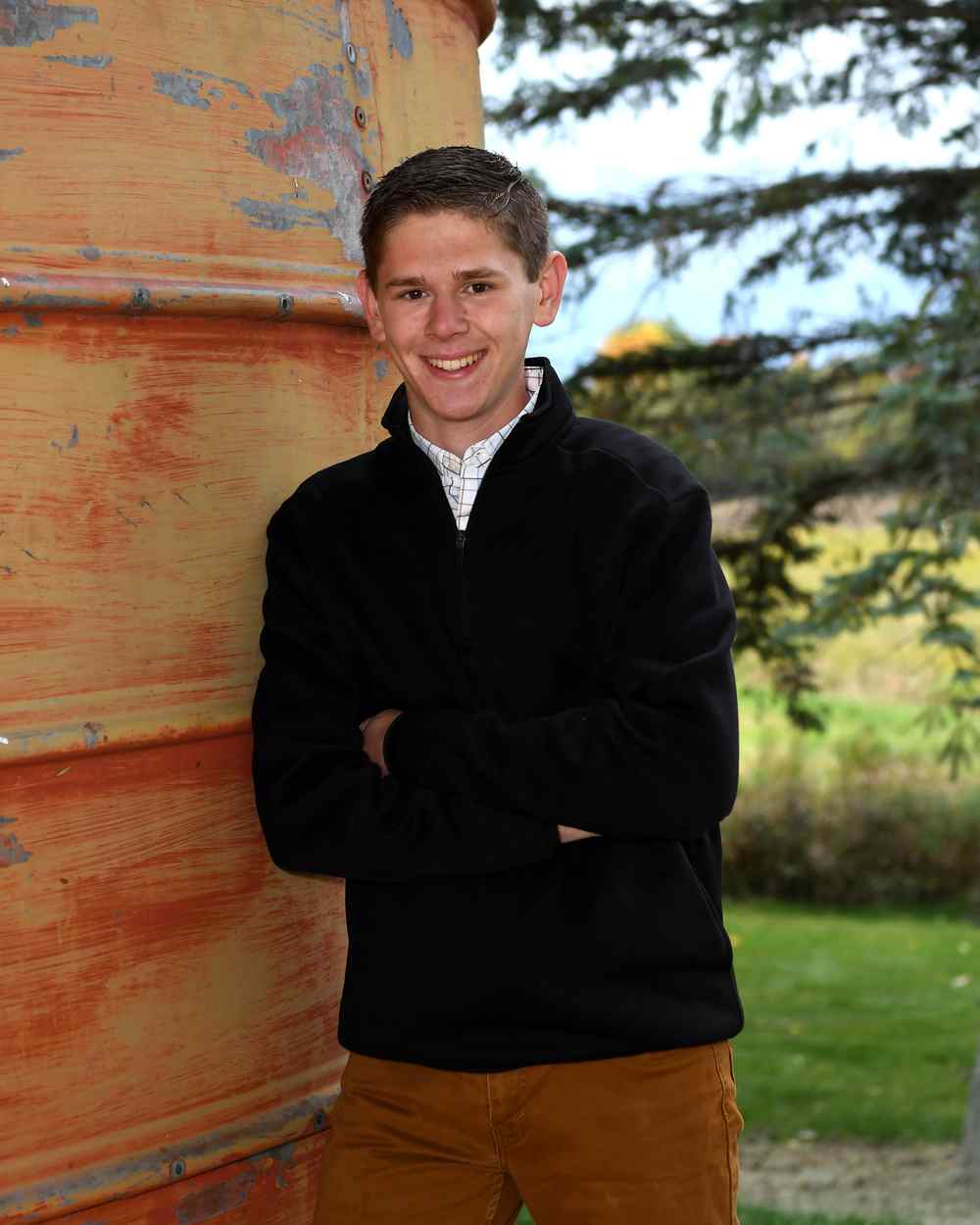
Click here to learn more about Sam's experience in Worlds of Greece and Rome.
Ellen Adams & Leifa Mayers
Tuesday & Thursday 10:00-11:15 a.m. and 11:30-12:45 p.m., HON 218
We are culturally socialized to avoid difficult conversations that deal with provocative, offensive, or potentially dangerous ideas. At the same time, contemporary life presents us with unique challenges: ever-changing technology, battles about rights, racial injustices, economic inequalities, and global health crises. How do we learn the skills to deal with the wicked problems of our time? This interdisciplinary course examines the artists, writers, theorists, and activists that work to address historical and contemporary dangerous ideas in impactful ways and cultivates the skills for addressing contentious topics in our own lives. In the Fall, we scrutinize free speech, censorship, and the origins of social protest beginning in the mid-19th century. We turn our attention to women’s suffrage, Labor rights, and race at mid-semester, when we begin a dynamic role-playing game in which students will immerse themselves in New York City in the 1910s.
During the Winter semester, we will continue our focus on dangerous ideas as they are represented in art and literature and contested in interactions between activist groups and government entities. Our exploration of the social movements of the 1960s will provide the foundation for another role-playing game in which students consider the responsibilities of the government in protecting the health of its citizens and the ability of activists to demand such protection. In the final part of the semester, we will make connections to contemporary issues of public health, race, gender, and labor. In this sequence, we will interpret, discuss, and write about a variety of texts – including primary source documents – and artwork to gain understanding of how individuals and groups mobilize, resist, and experience the impacts of challenging and disruptive ideas.
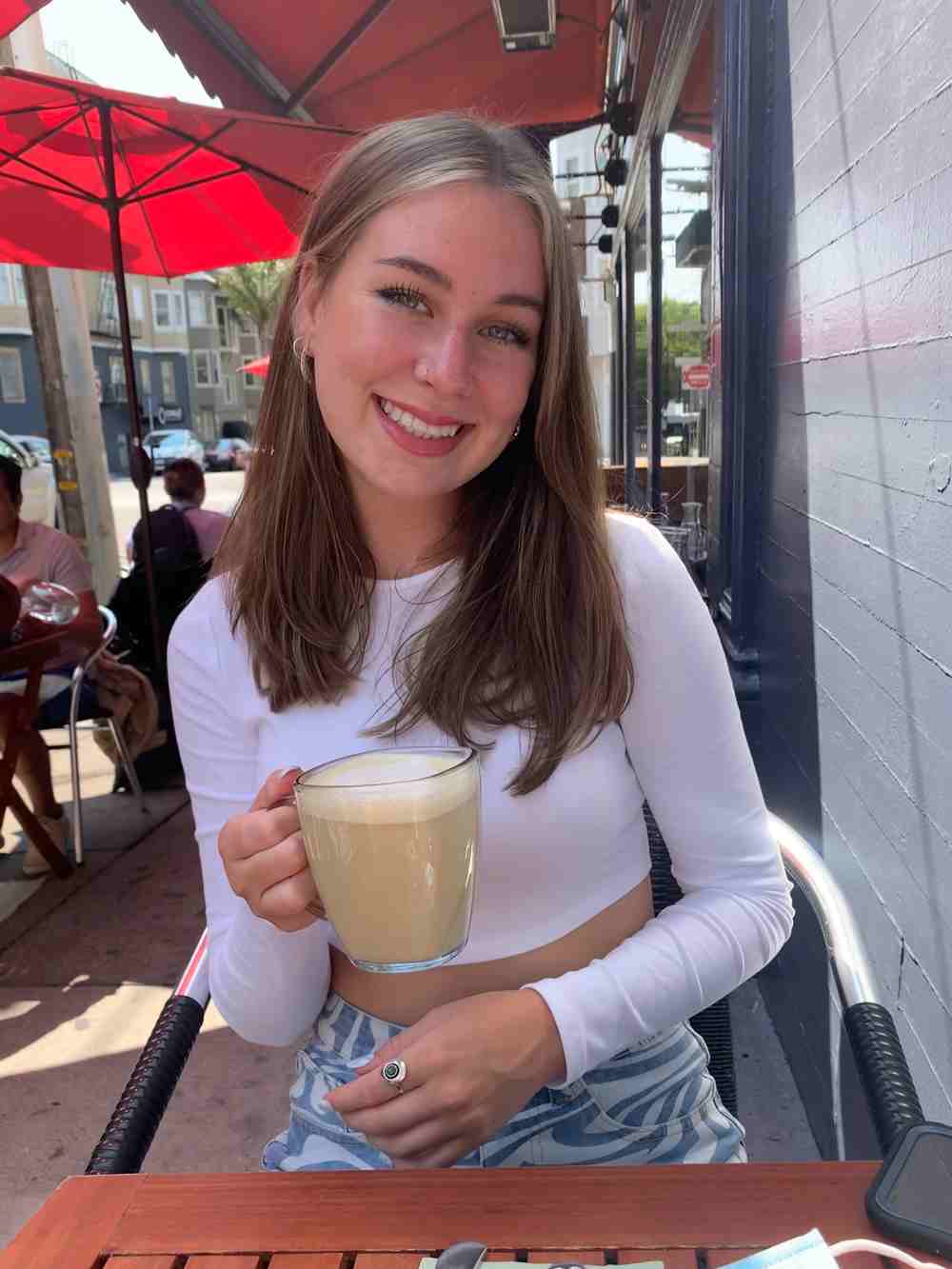
Click here to read about Quinn's experience in Dangerous Ideas!
Grace Coolidge & Elizabeth Gansen
Tuesday & Thursday 1:00-2:15 p.m. and 2:30-3:45 p.m., HON 220
While this course covers all of European history and culture, we put a special emphasis on Spain. Spain occupied a unique historical and geographical position as the cultural crossroad of East and West, where the three “peoples of the book” (Christians, Jews and Muslims) coexisted in complex patterns of harmony and tension. The Spanish empire dominated the early modern world, and Spain was home to a rich cultural Renaissance. By contrast, twentieth-century Spain survived a brutal civil war and the longest-running Fascist dictatorship in European history to become a thriving modern democracy. We explore the twists and turns of Spanish history and compare and contrast Spain to the rest of Europe, learning about its uniqueness as well as about the common ties that bind it to the mainland.
The sequence covers Spanish and European history and culture from the medieval period to the present day European union. We learn how to cure love-sickness, follow a gender non-conforming nun in her adventures across Spain and the new world, meet the famous witch Celestina, and wrestle with the Frankenstein monster. In the 19th century the class uses a six-week simulation in which students play the parts of workers and factory owners caught up in the Industrial Revolution, making choices and living with the consequences in this fast-changing culture. We explore the tragic, disillusioned poetry of World War One, the impact of the Holocaust, and the slow rebuilding of a traumatized Europe into today’s European Union. The class puts special emphasis on learning to write historical and literary essays and to handle a college-level reading load, skills that will benefit students in any discipline they pursue.
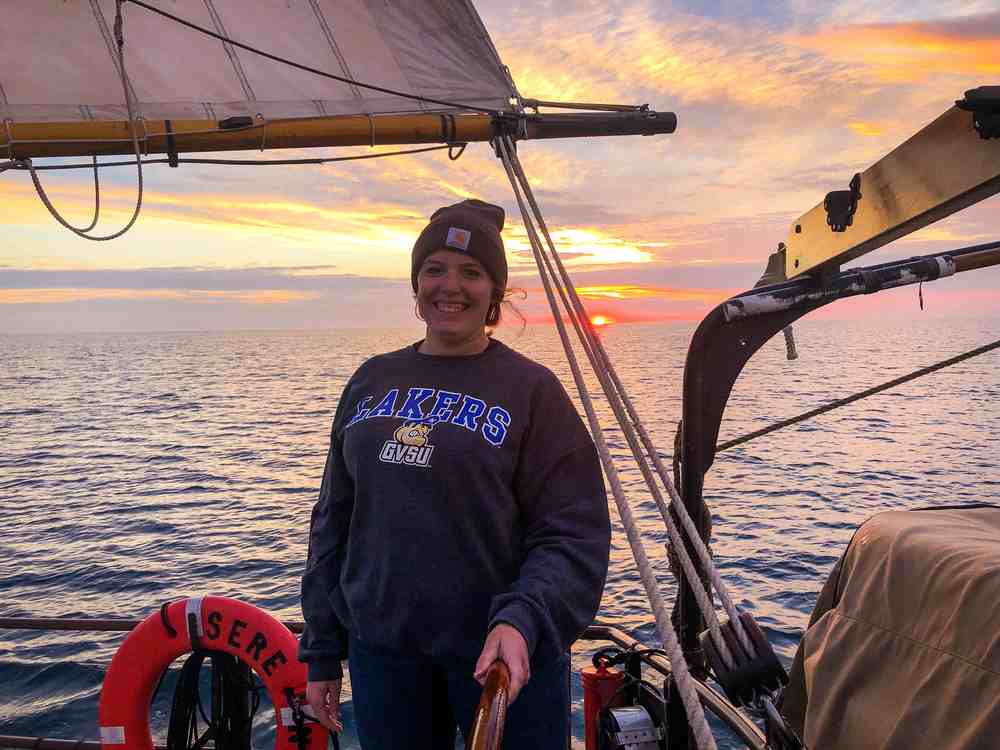
Click here to learn more about Gabriella's experience in Spain in Europe!
Meghan Cai, Jeremy Robinson, Yan Liang, Jason Herlands
Monday & Wednesday 3:00-4:15 p.m. and 4:30-5:45 p.m., HON 218
This four-course, two-semester sequence explores the circulation of peoples, culture, and ideas throughout East Asia, from ancient connections between the regions of China, Korea, and Japan to contemporary interactions in a globalized world. The classes adopt a truly interdisciplinary approach, including both the “high culture” of history, literature, philosophy, and art; as well as the “lived culture” of food, family, school, and work. Rather than taking a chronological approach, the course explores common themes through which we can see the culture of the past informing the worldviews of the present.
Each semester, two courses are team-taught by specialists in Chinese and Japanese Culture: Meghan Cai and Jeremy Robinson in the fall, and Yan Liang and Jason Herlands in the winter. All classes feature readings in primary and secondary sources, full-class discussion, individual and group projects, student presentations, and written essays. Classes will also include group excursions to museums, restaurants, and marketplaces, exploring the many ways in which “East Asian culture” circulates in our own midwestern American communities.
Jason Crouthamel & Rob Franciosi
Monday & Wednesday 3:00-4:15 p.m. and 4:30-5:45 p.m., HON 219
Memory is at the core of human identity. Without it, Holocaust survivor Elie Wiesel declared, “our existence would be barren and opaque, like a prison cell into which no light penetrates.” Yet memories of traumatic pasts are often shaped by tensions between collective forces—politics, culture, religion—and individual experiences of trauma. How do human beings narrate, process, and recover from industrialized violence? What cultural and political agendas influence how societies and individuals remember war or genocide? Who controls memories of trauma and for what purpose? What has been forgotten or distorted, and why?
To address these and other questions, this interdisciplinary sequence will confront two seismic events of the 20th century—the First World War and the Holocaust. By engaging a variety of texts, including literary responses, historical documents and analyses, visual arts, films, and music, we will study official attempts to build “collective” memories, but also the more “hidden” ways in which individuals struggle to describe the psychological, emotional, and spiritual impact of mass trauma.
During the Fall term we will explore the First World War and its long-term effects. Concentrating on “shell shock” (the forerunner of what we know today as PTSD), we will analyze the voices of those who suffered from psychological wounds, assess how the war’s brutalizing effects were experienced differently by men and women, and examine how the meanings of those wounds were contested by various political groups.
“The Great War,” historian Jay Winter argues, “made the unthinkable about human cruelty thinkable in the modern age.” That cataclysm, as well as the Armenian genocide and other forms of racism intensified by war, is key to understanding the even greater catastrophe of Nazism. In the Winter semester we will explore memory of the Holocaust by analyzing perpetrator motives and the behaviors of “ordinary men” who carried out unprecedented violence, but most importantly, by exploring the diverse testimonies of survivors who struggled to transmit their traumatic memories.
Ryan Lafferty & Paul Lane
Wednesday 3:00-8:50 p.m., HON 148
Design Thinking for Social Product Innovation is a unique experience where two crazy guys in ties lead students through the year as they learn everything there is to know about the design thinking process. Throughout this course, students gain exposure to the world and adapt new perspectives through collaborative problem solving. Inside the classroom, students can expect a nonconventional form of education where the professors foster an active and engaging environment. This incorporation of six hours’ worth of exciting field trips, cultural cuisine, and connecting with classmates allows for a community to be formed. From exploring Art Prize in downtown Grand Rapids to building stick houses for lego people, each week brings a new set of experiences. This course challenges the students' way of thinking and involves ongoing effort and dedication. DTSPI develops a mosaic of real-world skills such as self-confidence, communicating, researching, and much more.
Click here for a glimpse into Design Thinking for Social Product Innovation.
Coeli Fitzpatrick, Julia VanderMolen & Leifa Mayers
Tuesday & Thursday 11:30-12:45 p.m. and 1:00-2:15 p.m., HON 219
This sequence offers an interdisciplinary, reading/discussion-based exploration of the complex interplay between health, bodies, and society. The course draws from fields such as philosophy, public health, sociology, gender studies, critical race theory, and medical ethics. Students delve into ways in which health/illness, sanity/insanity are invoked as bodies are surveilled, regulated, registered, and incarcerated within various social, cultural, and political contexts. Through readings, multimedia materials, and lots of discussion, students analyze historical and contemporary practices that shape perceptions and experiences of health, illness, and embodiment.
In the first semester, we look mainly at two topics: the institution and disability. Our questions regarding the institution focus on how institutions function as places of control over bodies, whether those institutions are carceral, colonial, or care-oriented. For example, how have bodies in prisons, mental institutions, and nursing homes been counted, classified, and controlled by state and medical authorities? How did the state allow prisoners to be used in medical experiments? How does sanity and insanity come to be regulated by the state? What happened in mental institutions in the past, and why, given a history of abuse, are some people calling for the return of the mental asylum? How has political dissent been pathologized? Using a public health perspective, we also look at ability/disability and its definition and certification. We’ll think about stigma, the disability rights movement(s), the promise of technology, and the ethical questions of using genetic medicine.
In the second semester, we continue to ask questions about how the state’s understanding of ideology results in the exploitation of bodies. We focus specifically on neoliberalism and race to examine how neoliberal conceptions of health led to a certain conception of health in the United States and abroad. We learn about medical discrimination and activism in the United States and in a global health context. We look at the concept of medicalization (defining and treating social problems or human condition as medical problems) and the pathologizing of dissent and politically marginal positions. Students also have an opportunity to explore their own interest in topics of embodiment that aren’t covered formally.
Michael Huner & Andrew J. Schlewitz
Tuesday & Thursday 10:00-11:15 a.m. and 11:30-12:45 p.m., HHLC 209A
In Latin America, the past lives in the present, and Latin America’s past and present lives with strident influence throughout the world. Its mines and plantations have spouted silver, sugar, diamonds, lithium, and the origins of global capitalism, and from its peoples’ convictions and social struggles came some of the earliest and most expansive experiments in democracy in the history of the modern world. Today the region’s soy plantations feed China, its massive rivers churn the hydroelectric dams that power the largest cities on earth, and within those cities and throughout the Latin American countryside the largest populations of Native Americans, African Americans, and Asian Americans, broadly defined, thrive, survive, work, and move. This two-course sequence is an interdisciplinary approach to Latin America that actively links its present to the past and explores such experiences through seven linked themes: In the first semester—Indigenous Peoples, Plunder, Migration and Diaspora, Race and Gender. In the second semester—Nationhood, Political Violence, and Water. Classroom activities will feature gripping stories, enthralling conversations, and game play. Join us.
Peter Wampler, Matthew Cooper, & Tara Hefferan
Tuesday & Thursday 8:30-9:45 a.m. and 10:00-11:15 a.m., HON 214
Water is life. It shapes where we live, how we live, and if we live. Water is fundamental to many of the activities and actions we engage in both as individuals and as communities. Is safe water a human right that all people on earth should enjoy? Why do 2.1 billion people on this planet lack access to safe water in their homes? What cultural context informs our decisions about water in the United States and globally? This interdisciplinary course will explore these questions through books, articles, class discussions, guest speakers, field trips, and hands-on activities. We will take a deep dive into the science and social implications of contemporary water challenges and issues using tools, data, and perspectives from biology, geology, and cultural anthropology. We will explore contemporary water-related challenges such as lead, mercury, and PFAs in drinking water supplies; water use and allocation in the Great Lakes Watershed; and balancing competing values in the restoration of the Grand River and other waterways. The course will provide many opportunities to engage with your peers in open-ended problem solving and discussion of a range of water issues within their social and cultural context
In the fall, the course will include field data collection, field trips, and data analysis as well as numerous hand-on experiential learning opportunities. In the winter, we will focus more on global water issues and introduce the importance of culture and social structures in the ways we use and access water. We will gain cultural competence and a better understanding of water as culture. What are the realities of water access and use in other countries? We will explore water issues in developing nations such as Haiti, Ghana, and Ecuador. As we explore global water issues we will provide diverse viewpoints, perspectives, and opportunities for exploring how our own cultural context may impact our views of complicated water-related issues within the United States and internationally.
Click here to learn more about Making Waves: Water for a Changing World!
Melba Velez Ortiz & Steven Wilson
Tuesday & Thursday 10:00-11:15 a.m. and 11:30-12:45 p.m., HON 148
In the US alone, there are nearly two million non-profit and philanthropic organizations, each working to promote and advance a vision for a better world. This sequence examines how nonprofit leaders use the art of rhetoric (which Aristotle defines as the faculty of discovering the available means of persuasion in any situation) to advance their mission with passion, compassion, community engagement, financial sustainability, and will. Whether aspiring to change the world, save the planet, or shape a new vision for a favorite cause, students will learn about the many ways effective persuasion can be ethically engaged for the good of humanity and the planet.
The sequence begins with a systematic introduction to the principles and techniques of persuasion, each illustrated by real-time examples from community life in this connected and often chaotic age. What follows are in-class exercises and discussion about how rhetoric can bring alignment to the purpose-driven compassion of nonprofits, the delivery of their services to community, and their “fundability” by donors. These fundamental strategies are relevant to leaders in any field and any type of organization.
The second semester will shift to an exploration of how effective nonprofit leaders mobilize change by building enduring greatness in their organizations, with compelling stories shared about leaders of varying ages, genders, races, and nationalities. This study of leadership styles will include a deep dive into the many ways rhetoric informs how leaders bring about organizational clarity—the top indicator of any healthy workplace. As the sequence draws to a close, emphasis will shift to examining how community life today is more open, more participatory, more networked and peer driven, bringing the need for a new generation of leaders that effectively utilize the tools of rhetoric to innovate, navigate, and thrive in a new world of diffuse power structures driven by our technological age.
Dawn Rutecki & Azfar Hussain
Monday & Wednesday 3:00-4:15 p.m. and 4:30-5:45 p.m., HHLC 109A
Calling attention to the anticolonial Jamaican musician Bob Marley’s declaration in his song —"If you know, if you know your history/ Then you would know where you're coming from”— this interdisciplinary, globally-focused sequence brings together the history of colonization, its economic and social consequences, and the activist agendas seeking to weave together theory and practice to dismantle colonizing power structures in the interest of freedom and liberation. In Fall, we begin with key shifts occurring from the 15th through the mid-19th centuries, and thus examine economic, political, social, cultural, and religious changes that shaped how we experience the world today. Comparing practices coming from Europe, the European colonies, and the newly independent United States and studying their impact on targeted peoples in Africa, the Americas, and Asia, this sequence also emphasizes the modes of their resistance and survivance.
Continuing in Winter, we highlight the global shifts of physical, political, and intellectual sovereignty made by formerly colonized peoples, nations, countries, and communities. But is colonialism really a thing of the past? Is colonialism’s famous trinity of “God, Gold, and Gun” dead now? We explore these central questions in examining both colonial and decolonizing practices on a global scale in the twentieth and twenty-first centuries, while focusing on such sites as land, labor, language, and the body as the key sites of colonial domination as well as anticolonial rebellion, resistance, and even revolution. In this course, we will read, discuss, and write about the artistic, political, and scholarly work—and watch films and listen to music—that contextualize concrete experiences of colonization and decolonization.
Melba Velez Ortiz & Roger Gilles
Tuesday & Thursday 2:30-3:45 p.m. and 4:00-5:15 p.m., HON 219
Is listening easy? Is it the kind of thing we are good at because, like speech, we have been doing it all our lives? Is it ever okay not to listen? Like speech, listening is a process that begins long before we communicate. Our biases, presuppositions, and attitudes impact our ability to listen effectively—or even to hear others at all, as we increasingly see calls to mute, block, de-platform, and censor views deemed dangerous or unworthy. Drawing on multiple academic disciplines, this sequence explores the conceptual differences between involuntary auditory input and purposeful deeper listening practices in the context of both pluralistic societies and multicultural organizations. We explore hearing as a function and listening as an ethic—and ultimately a highly valued leadership competency.
Fall semester is largely devoted to exploring the ethical foundations of listening, speaking, reading, and writing through ancient Egyptian and Greek philosophy and literature. In rotating small-group discussions, informal role-playing debates, formal group presentations, and written essays, students explore key personal and cultural values in light of the assigned readings.
In winter semester, students read more Egyptian and Greek philosophy, work through a textbook on listening, and engage in in-class activities designed to challenge common attitudes and perceptions about listening in personal and professional contexts. A handful of guest speakers share the role of listening in their lives, and students reflect both orally and in writing on their developing thoughts on listening and leadership.
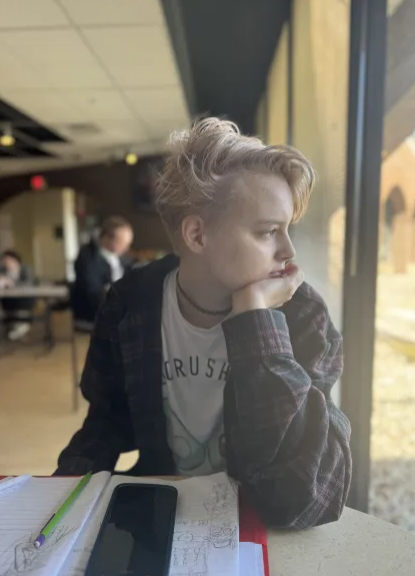
Click here to learn more about Lex's experience in the Sound of Ethics!
Maria Cimitile & Thomas Pentecost
Tuesday & Thursday 10:00-11:15 a.m. and 11:30-12:45 p.m., HON 220
This sequence explores how humans come to claim knowledge about the world and about how they make meaning from that knowledge. We will look at how scientific and philosophical knowledge is produced, how scientific consensus is obtained, and knowledge becomes communicated through standard works of science, philosophy, and the humanities. This communication is often contested, and results in questions about policies and identity. We will read some hard science, some deep philosophy, some beautiful literature and poetry, and some political fights, as we investigate and appreciate how humans have articulated their ongoing efforts to understand, describe, and change the world.

Click here to learn more about Hailey's experience in the Making of Meaning!
Peter Wampler, Peter Riemersma & Maria Cimitile
Monday & Wednesday 10:00-11:15 a.m. and 11:30-12:45 p.m., HON 220
Do you have courageous curiosity, imagination, creativity, and inquisitiveness? Earth Matters will be a journey, both literally and figuratively, that will heighten your senses, fire up your intellect, and help you skillfully tend our terrestrial ball. Our relationship to the natural environment is a product of both our experiences with nature and what we have learned about nature and the environment from others. This course will inform and equip student students to advocate for issues through environmental science, philosophy, and activism.
In the fall we will use a combination of guided readings (book clubs), hands-on activities (project), and experiential learning opportunities (field trips) to learn about the earth and nature. The course will provide an overview of pressing environmental issues and how we might develop sustainable solutions. We will focus on activities we can do outdoors such as learning about and participating in the GVSU Sustainable Agriculture Project (SAP), and collecting and analyzing various earth fluids and materials. Winter term we will explore why Earth Matters to us as humans and who introduced and championed the ideas we have about nature and the environment. How have different economic structures such as capitalism, socialism, and communism thought about the earth and how we treat it? How did these more modern worldviews draw on ancient philosophers and how they thought about the earth? We will use films, literature, and art to understand how our views of the environment are shaped by these structures and how they have changed over time.
Elizabeth Gansen & Anne Caillaud
Monday & Wednesday 9:00-10:15 a.m. and 10:30-11:45 a.m., HON 214
In October 2020, shortly before the United States’ presidential election, the New York Times posted a quiz: “Can you tell a ‘Trump’ Fridge from a ‘Biden’ Fridge?” Players were challenged to accurately identify a person’s political views based on a very particular criterion: the food they ate. While the validity of such a quiz is questionable, nevertheless it is undeniable that food reveals something intrinsic about our identity. It tells others who we are, where we are from, and what we do with our lives.
In this sequence, students explore the topic of food from diverse disciplinary perspectives and through various mediums, including film, literature, and art. Focusing initially on Latin American and French food culture as points of departure, we examine the impact of histories of colonization and migration on food production and habits, the politics of food and waste, and cultural expectations surrounding the making and eating of food. We also examine global trends in nutrition and food and their consequences for country-specific or regional gastronomy, such as what constitutes a ‘healthy’ diet as well as the growing popularity of plant-based diets. We try our hand at making some recipes from French and Hispanic culinary traditions and take several food-related excursions. Class is discussion-based and uses several Reacting to the Past (RTTP) games that put on display the central debates and tensions that define our current relationship to food.
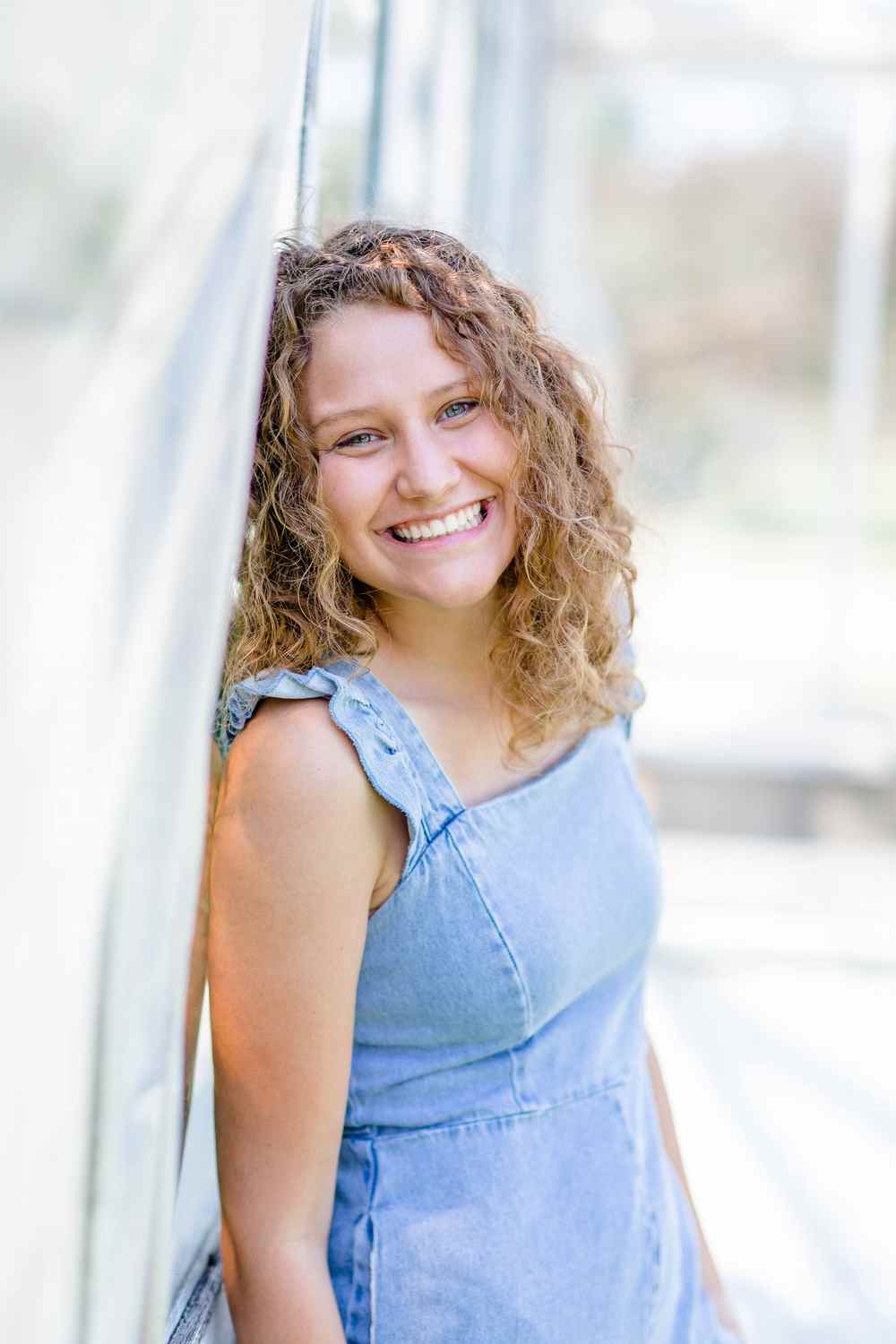
Click here to learn more about Alyson's experience in Food for Thought!
Timothy Evans & Kurt Ellenberger
Tuesday & Thursday 2:30-3:45 p.m. and 4:00-5:15 p.m., HHLC 109A
What do musical and scientific pursuits have in common? More than you would think—in fact, modern science owes many of its foundational theories to the study of music and acoustics. While seemingly disparate disciplines, artists and scientists actually have many things in common—each require the use of creativity, problem-solving, experimentation, and perseverance in the face of significant obstacles. The themes of initiative, improvisation, and intuition will be highlighted in this course through the exploration of the people behind concomitant significant musical accomplishments and scientific discoveries. The challenges, triumphs, and failures of these scientists and musicians will be studied within the broader social, political, and philosophical context of their times. This course will begin in the Middle Ages, culminating in Winter Semester in the 1960s, presenting a broad swath of scientists and musicians, with an emphasis on both well-known figures and underrepresented voices.

Click here to learn more about the "Engines of Innovation" first-year sequence!
Steve Tripp & Allison Metz
Tuesday & Thursday 2:30-3:45 p.m. and 4:00-5:15 p.m., MAK B1114
“Make It New!” the poet Ezra Pound declared. American art, literature, and theatre shocked, challenged, and enthralled the world in the twentieth century. Meanwhile, more obscure Americans – racial and ethnic minorities, women, the poor and dispossessed, the young – also raised their voices to be heard and seen. This course will examine major artists, playwrights, authors and ordinary Americans whose work expressed this American passion for the new. Join us as we explore the social, economic, and political conditions that influenced and inspired these creators. Class material will be brought to life through vigorous discussions, interactive experiences, and low-risk performance opportunities. With special attention to the evolving understandings of "youth" woven throughout twentieth century artistic and creative movements, we will emphasize how these voices and visions challenged, extended, enhanced, complicated, and even undercut what it means to be an American.
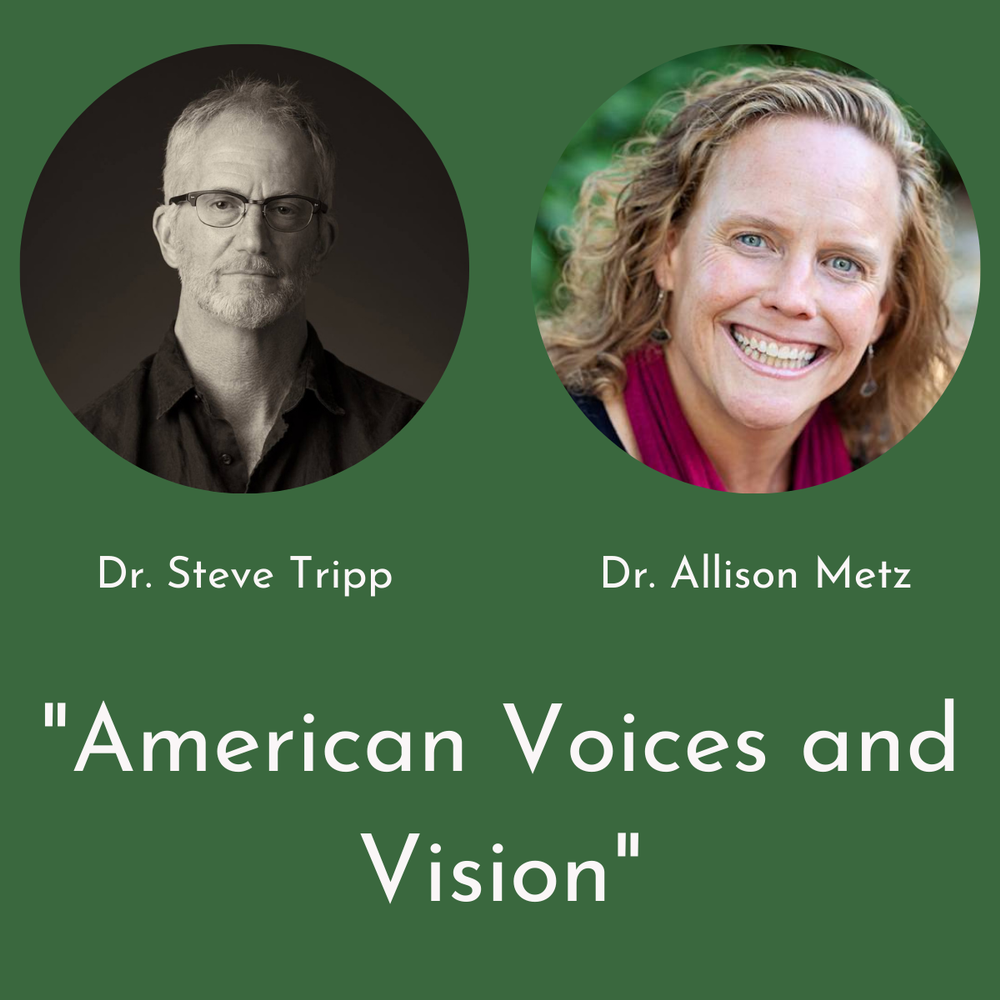
Click here to learn more from Dr. Tripp and Dr. Metz about their sequence, American Voices and Visions!